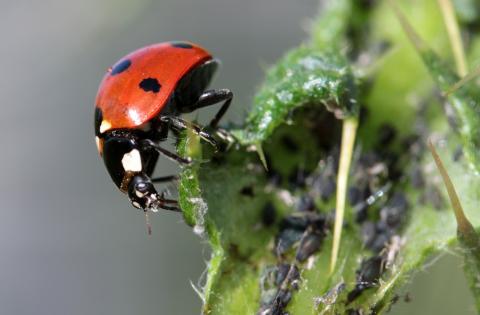Improving knowledge and experience of integrated pest control of soft fruit in Wales to reduce pesticide application and wastage
Biological control is the use of natural predators, parasites, bacteria, and sometimes plants to control pests and weeds as part of an integrated pest management programme, mainly in greenhouses and polytunnels. It has become standard practice for many larger horticulture farms supplying supermarkets, but it is not yet common practice for many smaller fruit growers in Wales.
Many small scale fruit growers are interested in utilising this method to reduce their use of conventional pesticides and reduce the chance of pests developing resistance to these pesticides.
The main hurdle for the small scale growers is the lack of knowledge and understanding on how to recognise pests, what biological controls are available, how best to use them, and how to integrate them into an existing pest and disease control programme.
This project trialled the establishment of different biological pest control strategies within polytunnels on two commercial fruit farms in south west Wales.
Project Outcomes
- Working closely with the experts, the growers developed a programme that suited their own growing systems and received training on pest identification, monitoring methods, and biological control options on an ongoing basis.
- Biological controls have the advantage bonus of being applied quicker to start earlier treatment.
- Both growers were impresses with the biological controls and will continue using them in the future to reduce their pesticide usage.
- As part of the project, factsheets and guides were produced to help other growers utilise an integrated pest management (IPM) approach.

